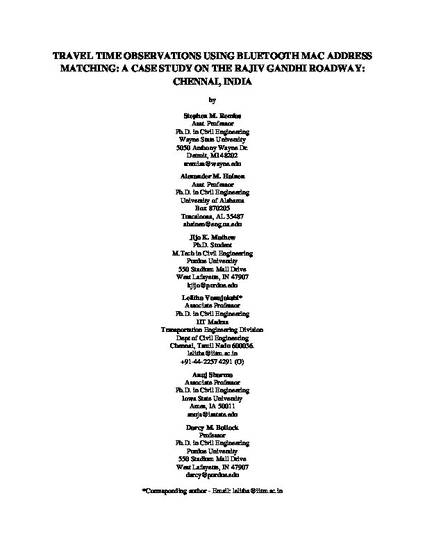
- travel time,
- reliability,
- Bluetooth,
- Raspberry Pi,
- driving behavior
Bluetooth MAC Address matching has become a useful approach for determining travel times on corridors in the United States. In September 2013, an international collaborative study was performed using this technology along a busy urban corridor in Chennai, India. Two Purdue University graduate students traveled to Chennai, India to interact and understand the dynamics of exchanging knowledge and implementing technologies in different environments. The students worked with students from IIT Madras to determine the feasibility of Bluetooth probe vehicle technology along a typical Indian corridor. The study determined that it is feasible to expand Bluetooth use in India. Using the technology, the impact of weather, holiday and peak hour related traffic events were determined and evaluated. Of particular note were the relative high penetration of Bluetooth devices, and the exceptionally strong impact of precipitation on the heterogeneous traffic stream in Chennai, India.
